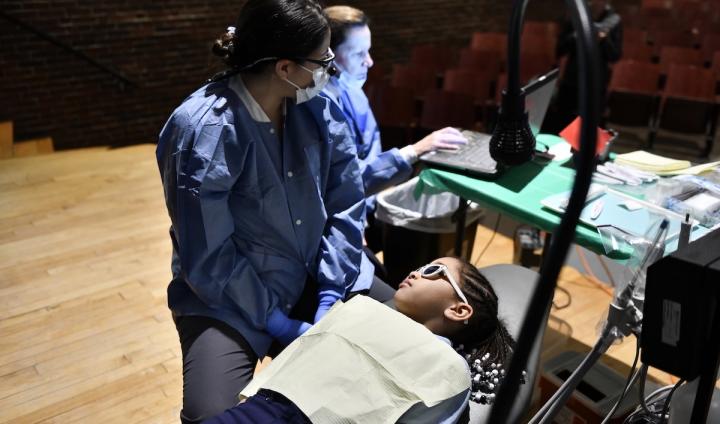
Credit: Forsyth Institute
In a longitudinal study published earlier this month in the Journal of the American Dental Association, researchers analyzed untreated decay in a cohort of nearly 7,000 children enrolled in the ForsythKids preventive dentistry program. Over the course of six years, the percentage of children with untreated cavities in the program decreased from 39 to 19 percent, suggesting that school-based prevention programs are effective in combating childhood dental disease.
Tooth decay is the most common chronic early childhood disease in the United States. More than half of children aged 6-8 years old have had a cavity, and kids from low-income families are twice as likely to suffer from untreated tooth decay as their higher-income peers.
To address this critical unmet need, the ForsythKids mobile dental program has provided preventive oral health care to children and teens at schools, community centers, and other sites across Massachusetts since 2003.
Researchers from the Forsyth Institute analyzed data from students at 33 public elementary schools in Massachusetts, all of which are classified as Title I, with high numbers of children from low-income families. The ForsythKids dental team provided comprehensive preventative oral health care twice per year, which includes dental examinations, dental cleanings, sealants, fluoride varnish, toothbrushes, toothpaste, oral hygiene instruction, and referrals to community dentists as needed. ForsythKids provides care at no cost to the patients or participating sites.
School-based dental treatment helps families overcome common barriers to accessing care, says Dr. Helen Nguyen, the Public Health Dentist for the ForsythKids program.
“Parents are often working a day job, a night job, another job in between,” Dr. Nguyen says. “If they take time off work to bring their child to the dentist, they could lose money or lose their job.”
Many parents are also under the impression that a dental visit is cost-prohibitive, or that their child would need to miss a full day of school to visit a dental office, Dr. Nguyen says, even though many of the schools are within a few blocks of a community health center that offers pediatric dental care.
With schools temporarily closed due to the COVID-19 pandemic, the ForsythKids program has been unable to see most of the children in over a year. Dr. Nguyen worries this has exacerbated the problem of untreated dental decay.
“For about half of these kids, we’re their only source of preventive dental care. This could mean that no one has an eye on their dental needs.” Dr. Nguyen says. “We know these communities need us.”
###
Media Contact
Alexandra Nicodemo
[email protected]
Original Source
https:/




